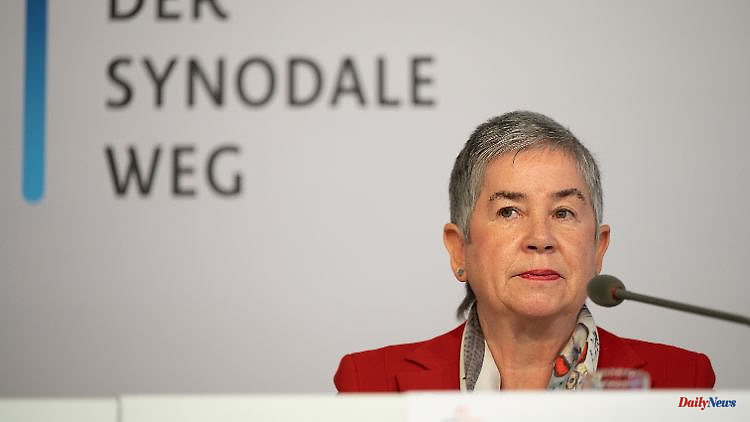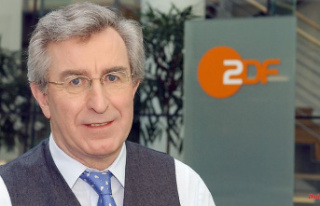The reform efforts of German Catholics arouse distrust and fear of division in the Vatican. The laypeople do not want to be deterred by this. However, the Central Committee does not want to demand a speed limit for bishops on motorways.
The Catholic lay people want to push ahead with church reforms despite resistance from the Vatican. There are obviously "different degrees of insight into how much the abuse scandal requires a synodal way out of the crisis," said President of the Central Committee of German Catholics, Irme Stetter-Karp, in Berlin. She was outraged by the curia's distancing statements on the processing of sexual assaults by priests: "I think it's outrageous to talk about 'so-called abuse'."
At the general assembly of the ZdK, Stetter-Karp referred to reactions from the Vatican during a trip by the German bishops to Pope Francis at the end of November. They had found no support for the German reform movement, the Synodal Way. Among other things, this calls for church offices to be opened up to women and for married priests to be admitted. A synodal committee is to start in 2023, which will make the reform process permanent. Hundreds of thousands of people leave the church every year. The Catholic Church in Germany currently has around 22 million members.
"We are clear that the abuse scandal requires an answer that reaches into the foundations of the structures of the Catholic Church," said Stetter-Karp. A path to new credibility of the church will only be paved with a renewal of content and structure. "The power of good arguments will ultimately prevail, but only where arguments count at all," she said. The meeting of the ZdK - the highest representation of the approximately five million organized lay people in the Catholic Church - also made a decision for consistent climate protection and a rapid energy transition towards wind, sun and water. A contribution is also required from the churches, for example through the use of solar and wind energy on their real estate and land and an energy-saving renovation of their houses.
However, Stetter-Karp expressed reservations about a speed limit of 100 kilometers per hour for bishops, as recently decided by the Synod of the Evangelical Church in Germany. "Of course there are many measures, that could be one of them," she said. But she doesn't want to say that that's exactly where the solution lies." Vice President Wolfgang Klose added that the ZdK years ago made a general recommendation for 130 km/h on motorways, not just for bishops. Stetter-Karp named important issues for Catholics Laity also the Ukraine war and its consequences, including migration and high energy prices. Housing is perhaps the central issue of the time. Here, too, the ZdK President took the church as a large property owner and sponsor of housing projects to duty. "We have one extreme housing shortage, and here the churches are in demand again with their strength, with their assets, with their possessions," she said.












